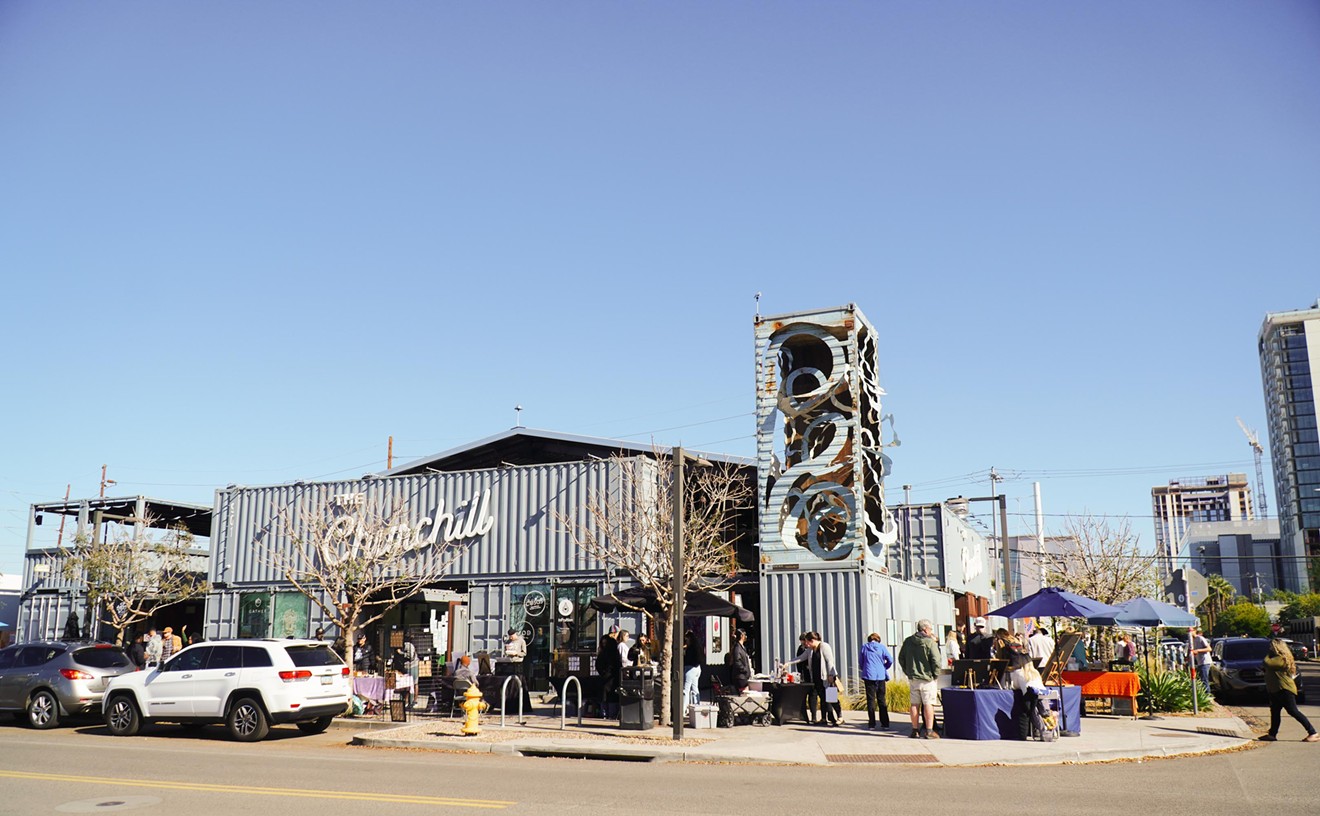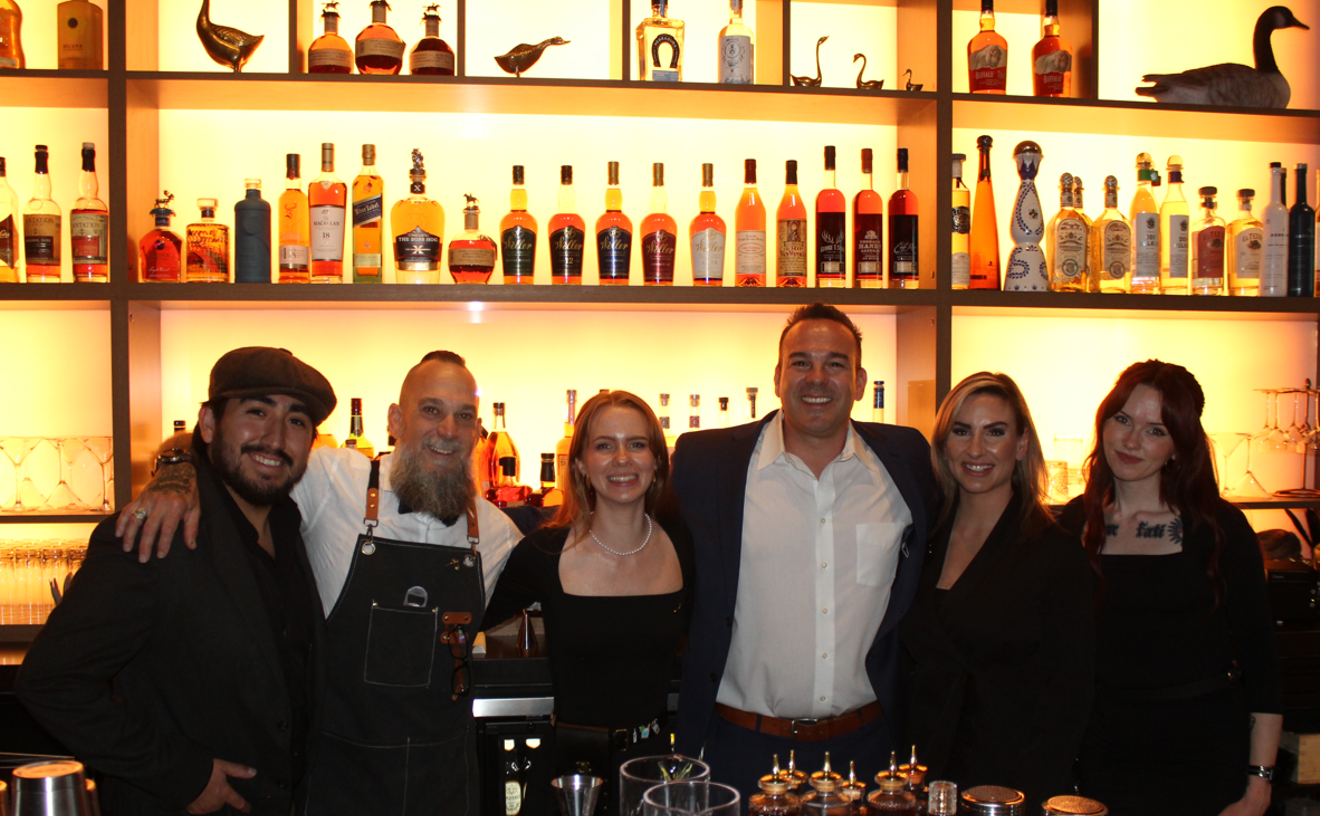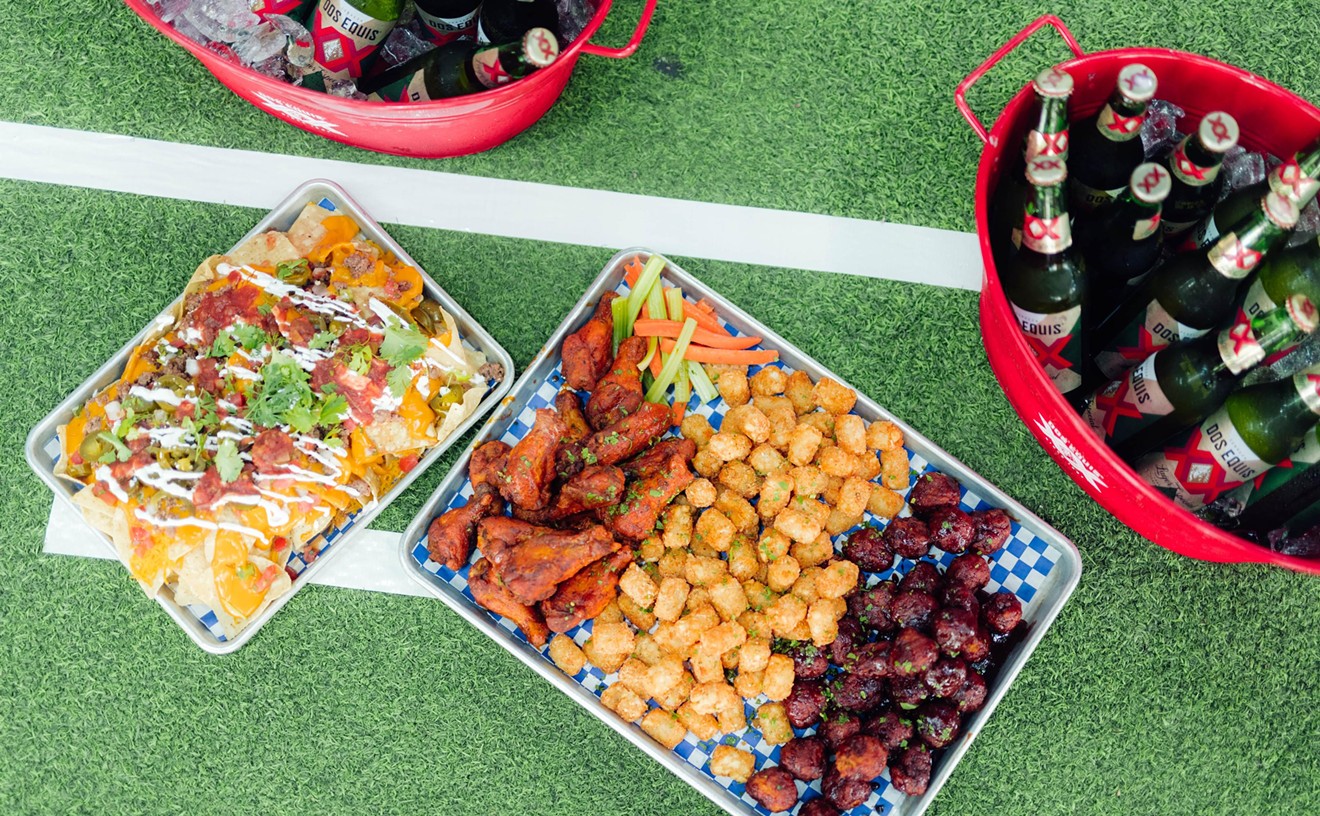Lynne Rossetto Kasper -- longtime host of NPR's James Beard Award-winning The Splendid Table -- was in town over the weekend to help KJZZ with its pledge drive. When I mentioned to four different friends that I was interviewing her, I got the same excited (and clearly envious) response every time: "Oh my God! I love her!!"
See also: - Blue Hound Kitchen & Cocktails: Happy Hour Report Card
I watched Kasper in action at the cocktail event at Blue Hound Kitchen & Cocktails Friday night, where a panel of four top Valley mixologists assembled for a discussion and taste of four craft cocktails (more on that later this week), and the next day, I took her out for a two and half hour lunch. And guess what? Her warmth, easygoing charm and enthusiasm for all things food-related are completely genuine. But if you listen to her religiously on KJZZ every Sunday afternoon, you probably already suspected as much. Here are the highlights of a conversation we had over Bento Boxes at Nobuo.
Guys in bands have traditionally been rock stars. Nowadays people involved in food are. How does it feel to be part of a movement riding such a crest of popularity?:
Ha! We all circle back to the high school mentality! I see it from two points of view. It's wonderful that good, honest food and the farmers and artisans who create it are now rock stars. May they all become multimillionaires, and I include chefs too. But on the flip side, there's a lot of celebrity around people who, quite frankly, don't deserve it. But that's fine. That's the way life is. That said, the more we put food in the forefront, the better. Because now we're thinking about what we eat.
You were talking about local, organic and sustainable -- even defining those terms -- long before they were part of the everyday lexicon. Is that part of the food movement near and dear to you?:
Yes, we were in the proverbial front seat of the revolution, and while creating quality food is important, I lose patience more and more, lately, when I hear "sustainability" thrown around. Only 10% of the population can afford that option. Only 10% have the choice to say, "I will buy organic." So many people are just lucky to eat, much less to eat local, organic and sustainable.
So what's the answer?
The government supports commodity farmers and that's fine. You don't throw all of that out. Commodity farmers feed the world and support the global economy. But the government should put the same energy into developing affordable food that is organic and sustainable. We gotta figure this out. We have no other choice.
You get a lot of crazy callers with crazy questions or suggestions. Is there a call that sticks out in your mind?:
One year on Minnesota Public Radio, we started Turkey Confidential because cooking Thanksgiving dinner is white knuckle time for a lot of people. Everybody calls in with their favorite way to cook a turkey. One man says, "You don't know what you're doing. The best way to cook a turkey is to fill a bucket with hot tar, wrap the turkey in foil and cook the turkey in the bucket of tar."
Wow! So did you all test that out?:
No, you'd be surprised how hard it is to get hot tar. So where do you come up with ideas for the show? Are you pitched a lot? Do you read a lot? How does it work?:
There are five of us working on the show, and we've all got our antenna up. We're always looking for material. We are pitched a great deal, and people send us everything. We also get just about everything that comes into print sent to us. And then there are ideas. We might think, "it would be great for this show to have a piece on X, and who's out there doing some very interesting stuff?" We're always looking for the take that's a little sideways, the person who really has the chops and knows what they're talking about. We're also always looking for variety and humor, hands-on cooking, science, trends, anthropology, the future, the genius and the authority.
Your background is Italian. How did you eat as a kid?:
We had four to five fresh vegetables every night plus a salad, and they were very simple, the way they were made in an Italian home in Italy. We had a piece of meat or fish and lots of greens, and there would be oil and vinegar and salt and pepper on the table, and you dressed your vegetables how you wanted them. And then at the end of the meal there would be the big salad. I thought everybody ate like rabbits. The first time I went to eat dinner at a friend's house, I had frozen vegetables and I thought it was the most fascinating, exciting, sophisticated thing in the world! And they only had one vegetable, not a table full! And you have the realization that perhaps the world is a little bit different than you thought it was.
Can you name a few of your most memorable guests on The Splendid Table?:
I've been so privileged to learn from the best minds. Julia Child, of course. She was always so gracious and, really, so funny. And then Will Allen, a leader in urban agriculture who wrote The Good Food Revolution. He has created an urban farm system that feeds 10,000 people a year on inner city land. And I loved talking to Barry Estabrook who wrote Tomatoland. This book, an exposé of today's agribusiness systems, is so important and so eye-opening. Did you know that Florida has a slave trade, thanks to the tomato industry? Everyone should read this book. You lived in Brussels and traveled Europe for five years. How did your experiences prompt the book The Splendid Table?: This sense that I'd had this incredible privilege for five years, the luxury of really digging into the why and the how of food. Yeah, food comes out of what grows there, but it's many things. It's not just micro-climate, it's micro-mentality. It's the idea that there's a collection of experiences -- history -- that shapes sensibilities. I mean, the first university in Europe started in the 1100s in Bologna, which is in the capital of the region. Why there? The Greeks and Etruscans traded there before Christ. It was like trying to put together the pieces of a puzzle. With Emilia-Romagna, strictly from a professional point of view, no emotion involved, this region is a very important region to understand because you have incredible quality, an incredible sense of excellence. The unspoken question in this book and in a lot of books is, "Why this food in this place?" I became fascinated by this question.
What are some trends you've seen in 2012?:
Well, the [cocktail] program we did last night. We know, the cocktail scene has exploded the last few years. And it's hard to know if it's the chicken or the egg, because the single-barrel trend started years ago. But the thing we're seeing now is American spirits being re-interpreted -- and not in the sense of the gimmick. I was at a gathering of artisans in Vermont for Vermont Public Radio, and somebody handed me a little plastic cup of local gin and I sniffed it and it was like walking through a field of wildflowers. And this was not some flavored gin.
There's a renaissance going on now with American rye whiskey -- bourbon the same, gin the same, vodka the same. And I don't mean you've added a vanilla bean or some phoney-baloney, fake flavor. I mean re-thinking the whole distilling process. And these spirits are turning into sipping liquors.
Another huge trend that's ongoing is a real awareness of "Where's my food coming from? How is it grown? How is it getting here?" and all of the thorny issues growing out of that. If you were ONLY to buy local, you would never see a coffee bean. And if you ONLY buy local, how many people do you put out of work? So there's a balance that you strike, but there is a growing awareness that food is politics. That's what's coming out of this.
Enjoy this Chef Salad? Check out Nikki's previous interviews with: Aaron May of Praying Monk Cullen Campbell of Crudo DJ Monti Carlo Pete DeRuvo of Davanti Enoteca Chuck Wiley of Cafe ZuZu Justin Beckett of Beckett's Table Bryan Dooley of Bryan's Black Mountain Barbecue Silvana Salcido Esparza of Barrio Cafe Jeff Kraus of Crepe Bar Bernie Kantak of Citizen Public House James Porter of Petite Maison Johnny Chu of SoChu House Neo Asian + Martini Bar Stephen Jones of Blue Hound Kitchen & Cocktails Chris Gross of Christopher's Restaurant and Crush Lounge Chris Curtiss of NoRTH Arcadia Payton Curry of Brat Haus Mark Tarbell of Tarbell's Josh Hebert of Posh Kevin Binkley of Binkley's Restaurant Lori Hashimoto of Hana Japanese Eatery Larry White, Jr. Lo-Lo's Fried Chicken & Waffles










